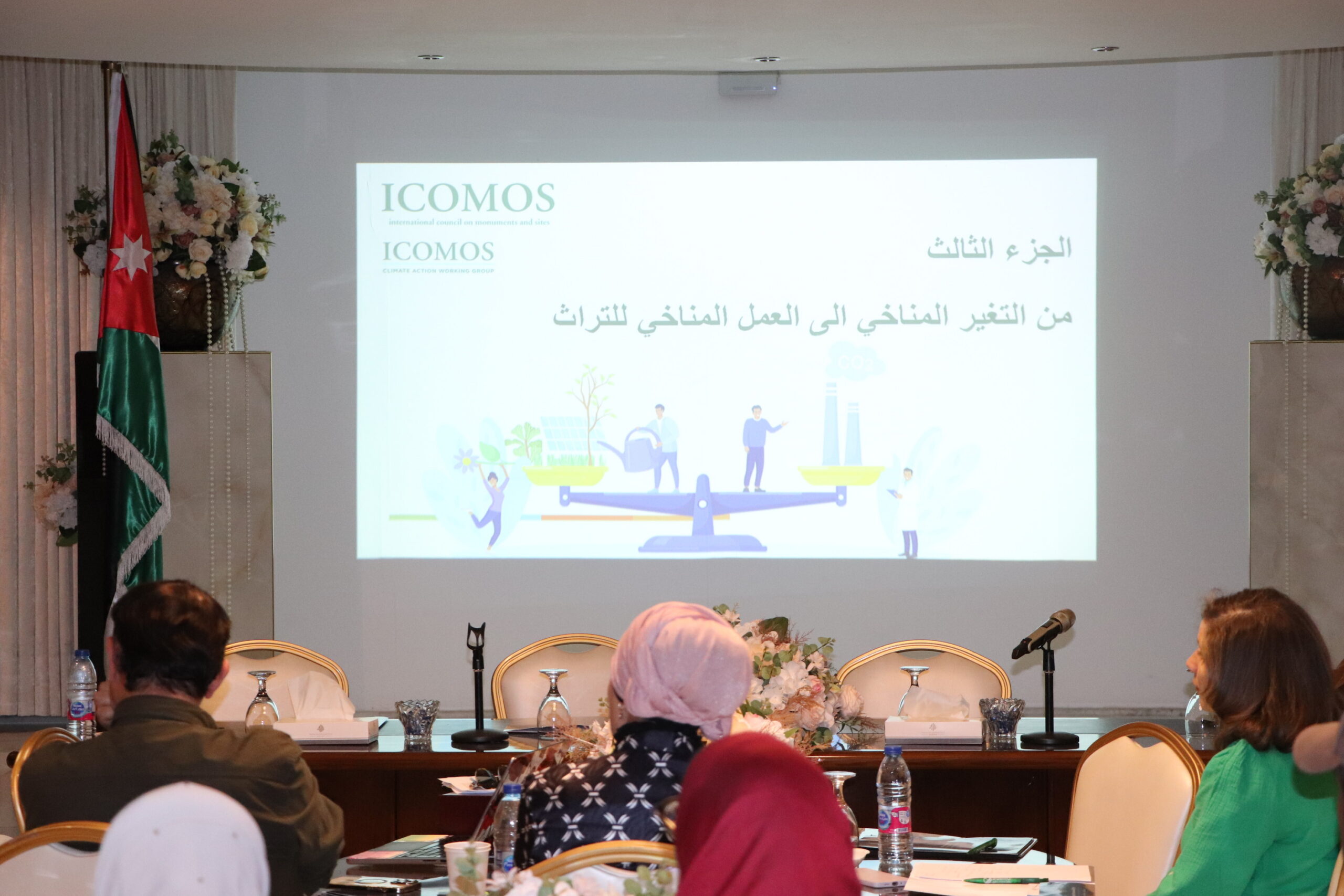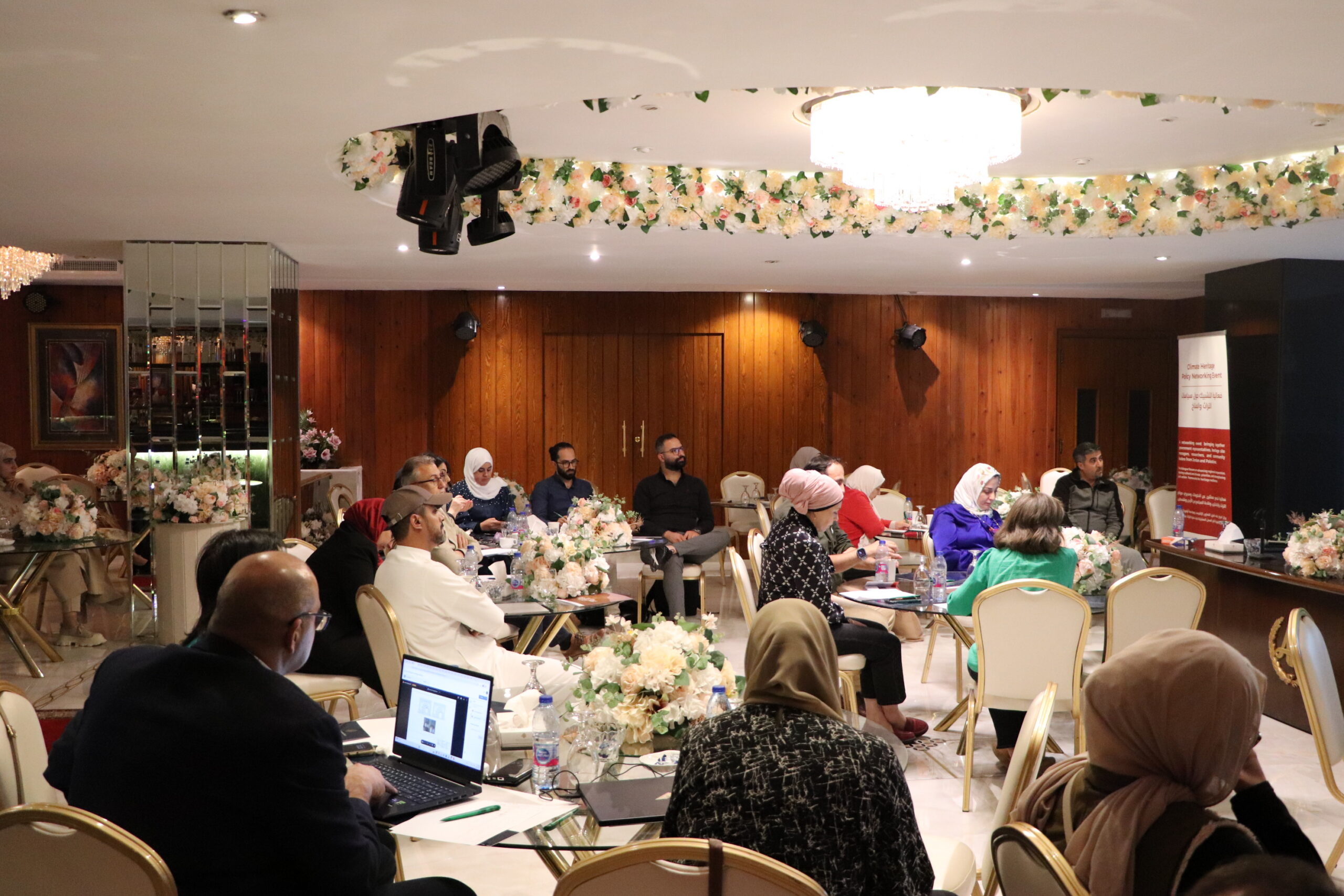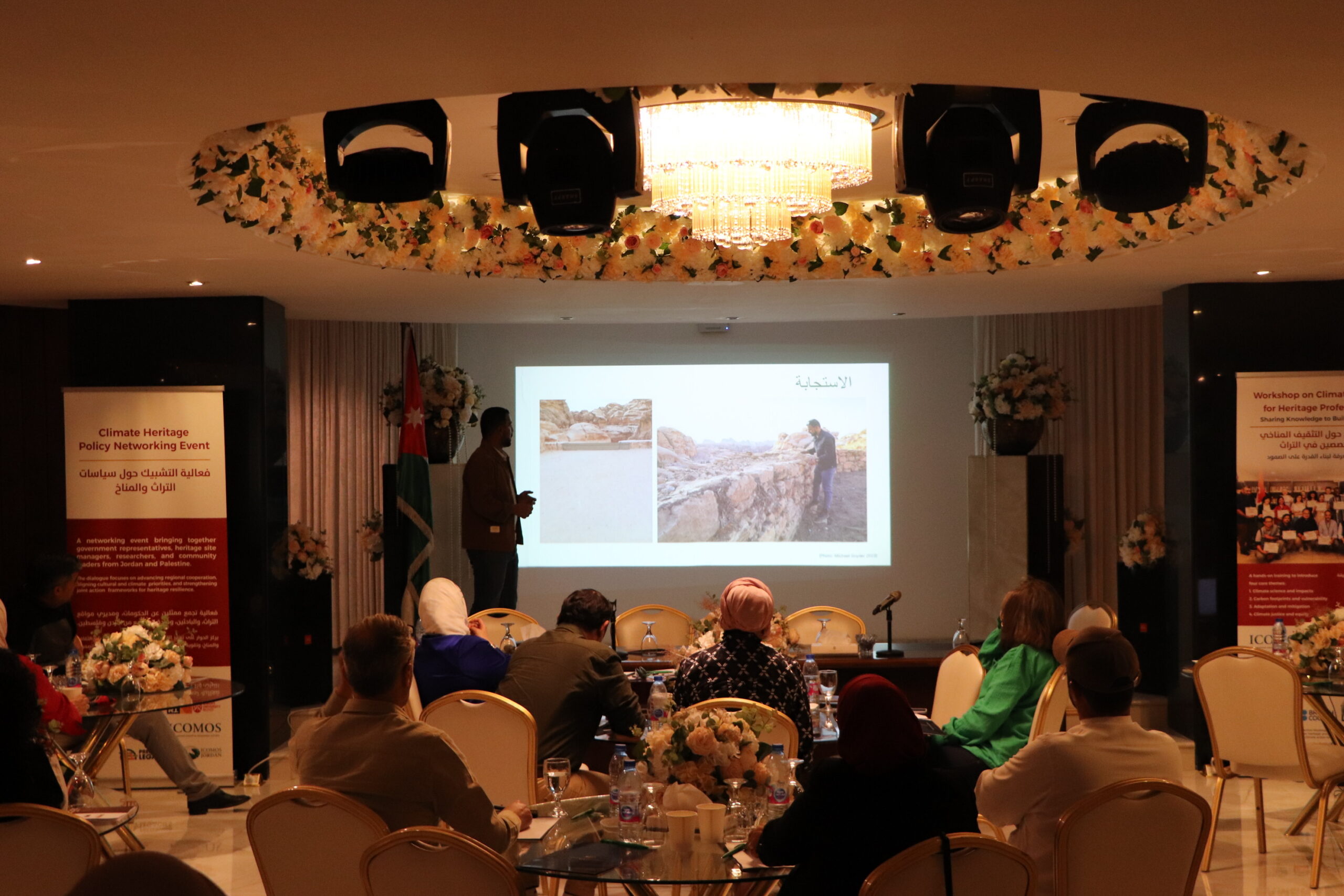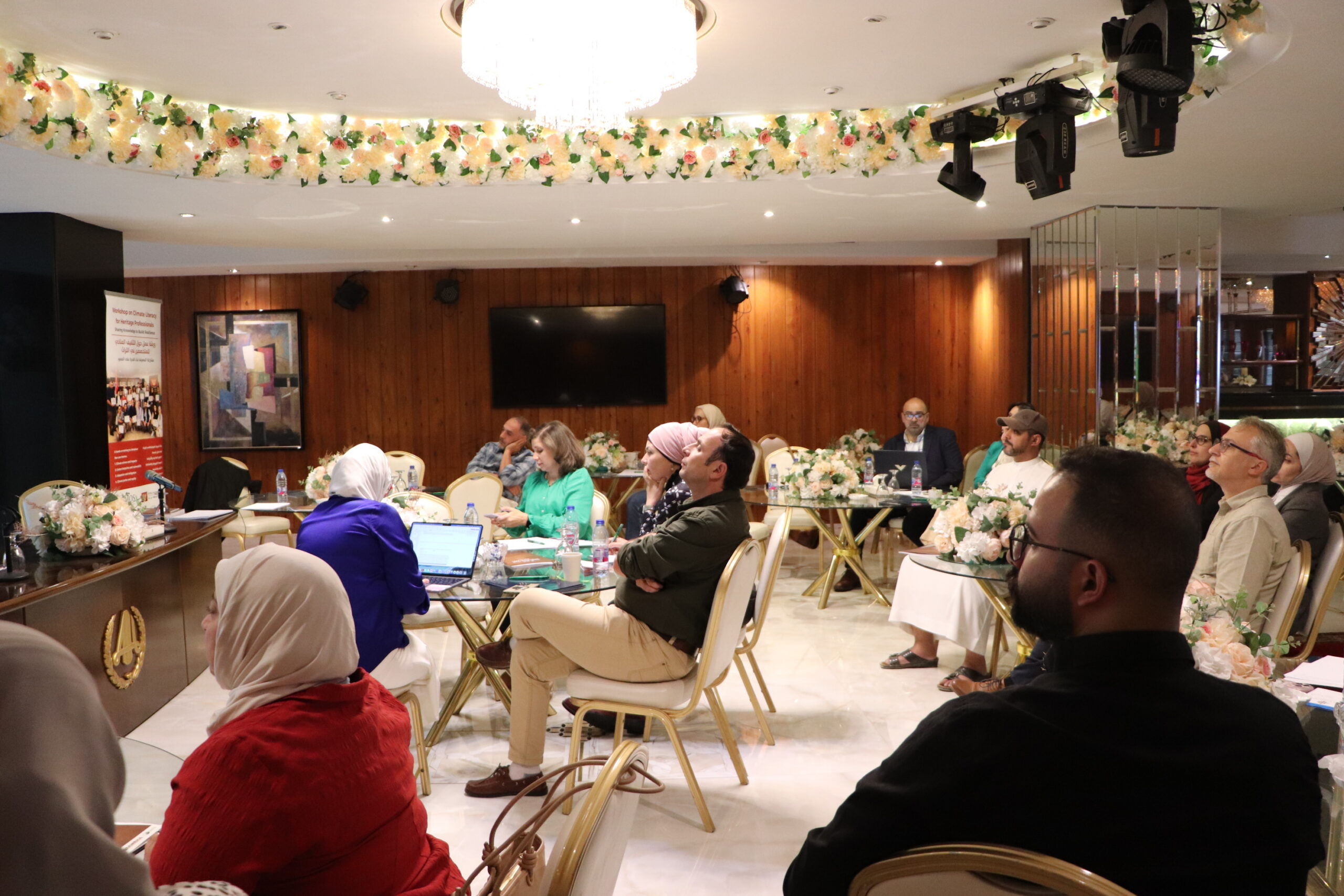ICOMOS Concludes Climate Literacy Training for Heritage Professionals in Amman, Jordan
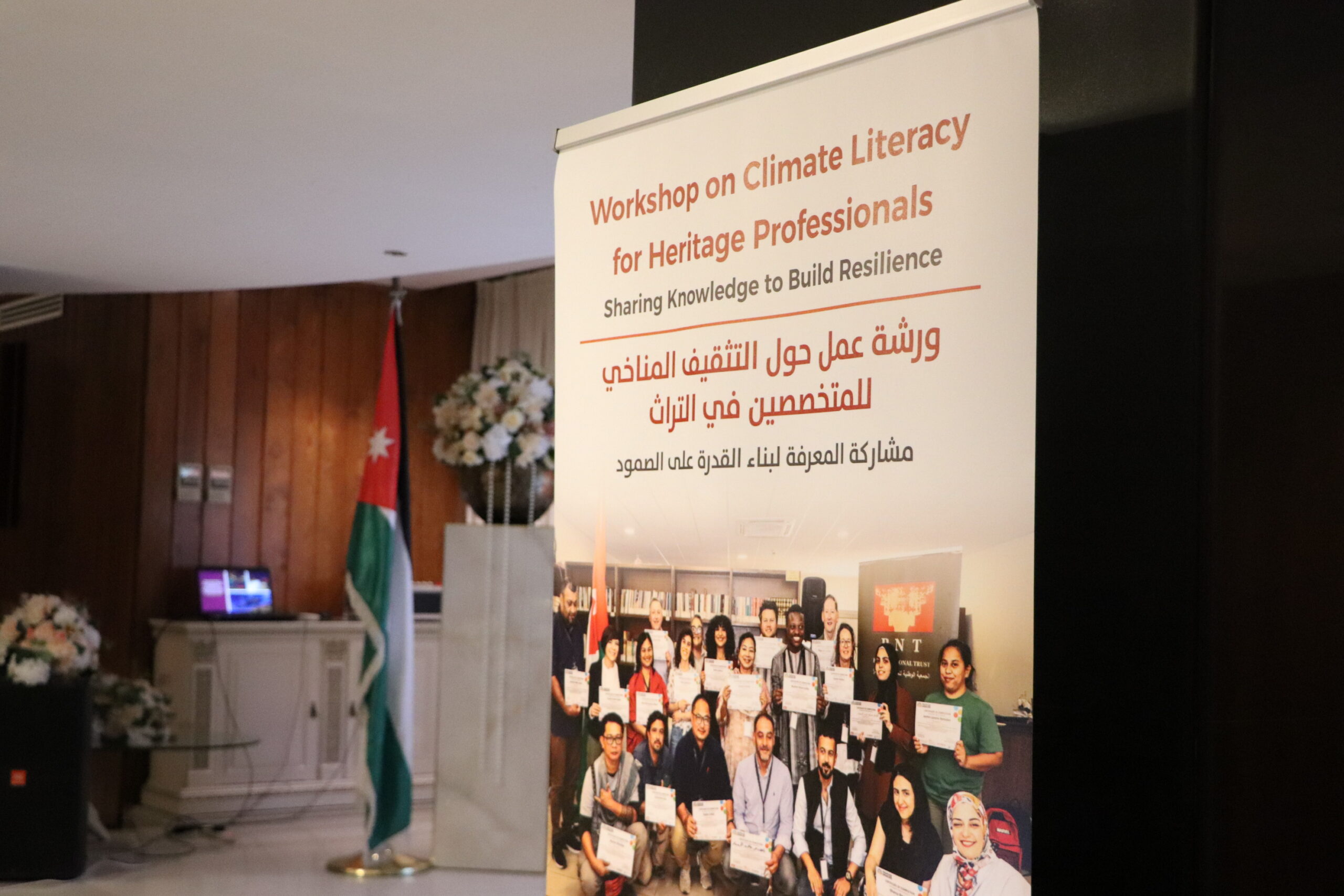
After a successful edition held in Dublin in September, the ICOMOS Climate Action Working Group led another Climate Literacy Training for Heritage Professionals in Amman, Jordan, on 29 October. Organised in cooperation with the Petra National Trust, the EAMENA project, Triple E, and Queen’s University Belfast, together with ICOMOS Palestine and ICOMOS Jordan, this activity was part of a series of events held from 28 to 30 October and funded by the Irish Department of Foreign Affairs, The British Council, and Queen’s University Belfast.
Building capacity in Climate Literacy
Climate change literacy is defined as an understanding of climate impacts and the relationship between culture and climate. The global lack of accessible tools and coordinated strategies for the management of risks related to climate challenges intensifies their potential impact on the cultural heritage sector. On this basis, the ICOMOS Climate Action Working Group (CAWG) developed a training course within the framework of the Preserving Legacies project, in an attempt to address the critical necessity for cultural heritage professionals to build capacity in responding to climate-related issues. Climate Literacy Training courses combine scientific research with heritage policy and local expertise to lay the foundations of a sustainable future for heritage management in the involved regions.
The courses are divided into four topics:
- Science and impacts;
- Carbon footprints and vulnerability;
- Adaptation and mitigation;
- Climate justice and equity.
Climate Literacy Training in Amman, Jordan
Over 40 heritage professionals from Jordan and Palestine took part in ICOMOS CAWG’s Climate Literacy Training in Amman. Participants were given the opportunity to explore innovative approaches to climate action and resilience in the field of cultural heritage, particularly through regional cooperation and capacity-building activities.
This edition of the course involved the participation of Will Megarry, former ICOMOS CAWG focal point, ICOMOS Jordan member Shatha Mbaiden, and ICOMOS Palestine member Yara Ramadan. Together, they introduced ICOMOS CAWG before providing essential information on notions such as climate change, and its causes and impacts on cultural and natural heritage. The session concluded with interactive group discussions around the identification of climate risks through global examples.
From the windswept coasts of Ireland to the deserts of Jordan, climate change threatens some of our most special places. These sites are more than just old ruins. They anchor us place and give us sense of identity. This week provides us with an opportunity to meet, learn from each other and identify practical and meaningful ways to protect our cultural heritage for future generation.
